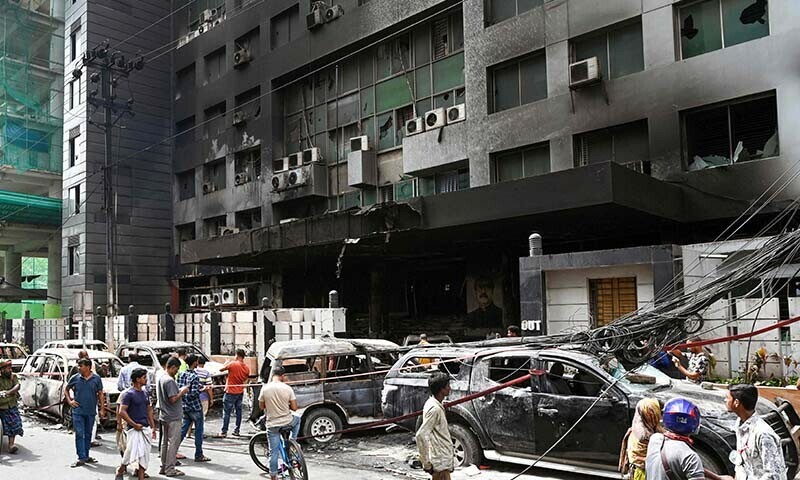Overview
Television news channels in Bangladesh went off the air, and telecommunications were widely disrupted on Friday due to violent student protests against government job quotas. Nearly two dozen people have been killed in the unrest this week.
Violence and Disruptions
French news agency AFP reported that the death toll from Thursday’s violence had risen to 32, while Reuters initially reported 13 deaths. Fresh violence broke out on Friday, with police using tear gas to disperse protesters. The Economic Times reported that Prime Minister Sheikh Hasina’s government called in the army late Thursday to maintain order, though Reuters could not verify this independently.
Underlying Issues
The protests began due to anger over the quota system but are fueled by broader economic issues, including high inflation, rising unemployment, and dwindling foreign reserves. The protests have also highlighted political fault lines dating back to Bangladesh’s independence in 1971, including tensions within Hasina’s Awami League.
Communication Shutdown
Authorities cut some mobile services on Thursday to quell the unrest, and disruptions spread nationwide on Friday. Many telephone calls from overseas could not connect, and internet-based calls were not going through. Websites of several Bangladesh-based newspapers were not updating, and their social media accounts were inactive.
Impact on Daily Life
In Dhaka, streets were deserted on Friday, a weekly holiday in Bangladesh. There was minimal traffic, few rickshaw pullers, and sparse crowds at a vegetable and fish market. A protest rally was planned at the main mosque at around 0800 GMT.
Cyber Attacks
The official websites of the Bangladesh Central Bank, the prime minister’s office, and the police were hacked by a group calling itself “THE R3SISTANC3”. The hackers left messages condemning the government’s actions and calling for justice.
Background and Demands
The protests, the largest since Hasina’s re-election, are driven by high youth unemployment. Nearly 20% of Bangladesh’s 170 million people are out of work or education. Protesters demand the state stop reserving 30% of government jobs for families of those who fought in the 1971 independence war. Although the government scrapped the quota system in 2018, a high court reinstated it last month. The government appealed, and the Supreme Court suspended the high court order pending a hearing on August 7.
Government Response
The government has expressed willingness to hold talks with the protesters, but demonstrators have refused, stating, “Discussions and opening fire do not go hand in hand.” Hundreds have been injured this week as police used tear gas and rubber bullets to disperse protesters, who have torched vehicles, police posts, and other establishments.
Economic Context
Bangladesh has been affected by the Russia-Ukraine war and secured a $4.7 billion bailout from the International Monetary Fund (IMF) in January 2023. The IMF concluded a second review of Bangladesh’s bailout program in June, providing immediate access to about $928 million in loans for economic support and about $220 million to combat climate change.


